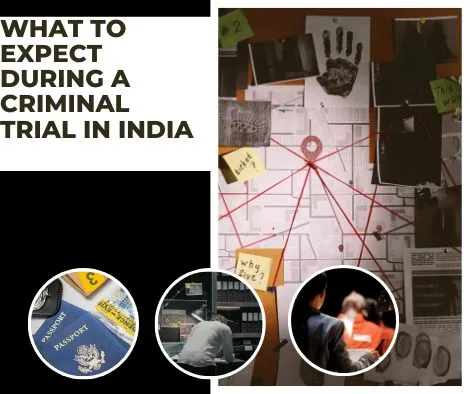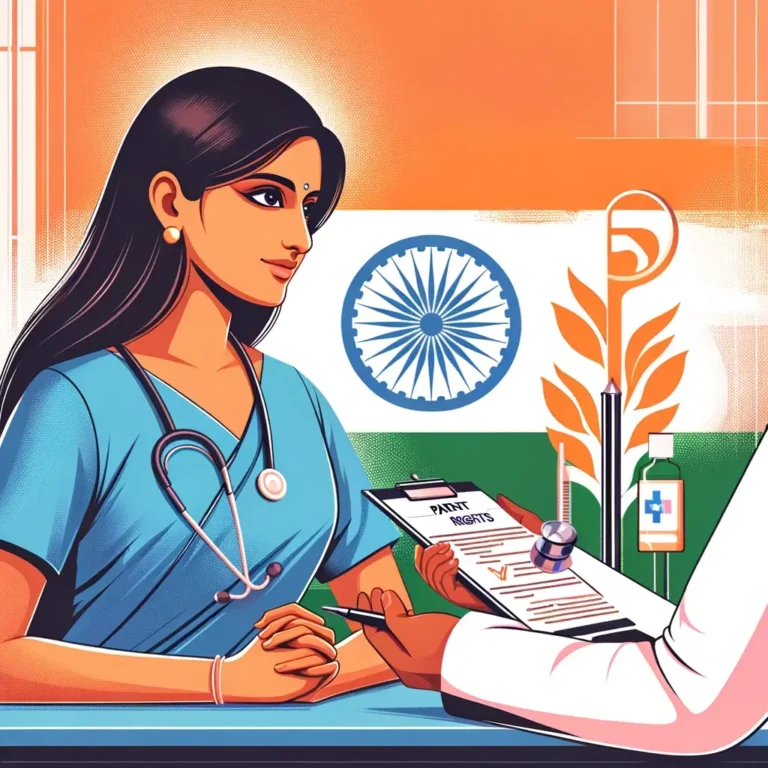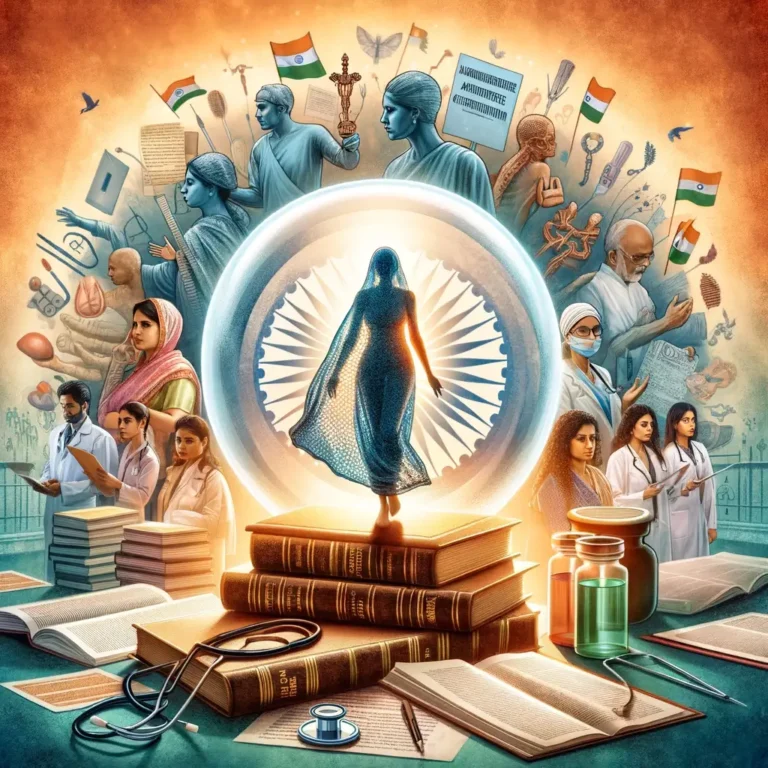In this article we have explained about Legal Rights For Single Mothers In India.
Introduction
Raising a child as a single mother in India presents unique challenges, including navigating the complex landscape of legal rights and entitlements. This guide aims to clear the legal framework supporting single mothers in India, ensuring they are well-informed and empowered to secure their and their children’s futures.
Understanding Single Motherhood in India
The Concept of Single Motherhood
Single motherhood may result from various circumstances, including divorce, separation, widowhood, or choosing to have a child without a male partner. Regardless of the cause, single mothers in India face societal and legal hurdles, necessitating clear knowledge of their rights.
Who is a Single Mother?
In today’s evolving society, women have become stronger, rising above societal judgment and stigma to achieve greater heights. Single motherhood arises under various circumstances, such as desertion, divorce, childbirth out of wedlock, adoption by an unmarried woman, surrogacy, or IVF, where the mother assumes both parental roles.
These women, known as single mothers, face significant challenges, often necessitating professional mental health support.
Legal Rights for Single Mothers in India: A Comprehensive Guide
Historically, Indian society has placed constraints on women’s independence, but legal frameworks have been established to empower single mothers with rights to independently rear and care for their children. Despite legal recognitions, single mothers encounter systemic discrimination, such as registration delays because a child lacks a father’s name on documents. This resistance stems from a lack of understanding about choosing single motherhood.
The right to privacy is paramount for single mothers, allowing them not to disclose the father’s identity if it’s in the best interest of the child’s welfare. Landmark legal cases have reinforced the unwed mother’s right to be the sole legal guardian without revealing the father’s identity.
Right to Child Custody
Single mothers have the primary right to the custody of their minor children, especially in cases of divorce or separation. The law prioritizes the child’s welfare, often granting custody to the mother, considering her typically closer emotional bond with the child.
Factors Influencing Custody Decisions : Courts consider several factors when awarding custody, including the child’s age, the mother’s financial stability, and the child’s overall well-being.
Right to Financial Support
Single mothers are entitled to seek financial support or alimony from their child’s father. This support aims to cover the child’s basic needs, including education, healthcare, and general maintenance.
How to Claim Financial Support
To claim financial support, single mothers must file a petition in family court, detailing the child’s needs and the father’s financial capacity.
Right to Property and Inheritance
Children of single mothers have equal rights to their parents’ property, ensuring their financial security and well-being. The law safeguards these rights, irrespective of the parents’ marital status at the child’s birth.
Guardianship Rights
Traditionally, the father is considered the natural guardian until the child turns five, after which full guardianship rights can pass to the mother upon the father’s demise. Legal provisions ensure that a mother has guardianship rights over a child born out of wedlock, moving away from terms that stigmatize such children.
Right to Adoption
Single women in India have the right to adopt a child, reflecting societal acceptance and legal acknowledgment of diverse family structures. The adoption process for single mothers is governed by specific guidelines to ensure the child’s best interests.
Right to Use Mother’s Surname
Recent judicial observations advocate for a child’s right to bear the mother’s surname, challenging traditional norms and supporting a child’s autonomy in identity. The Supreme Court has recognized a child’s right to parental identity while emphasizing privacy.
Legal Recognition and Rights
Indian law recognizes the challenges faced by single mothers and provides specific rights to support them in raising their children independently and with dignity.
Social Welfare Schemes for Single Mothers
The Indian government has introduced various schemes to assist single mothers, including financial aid, educational scholarships for children, and housing subsidies. These schemes aim to reduce the economic burden on single mothers and help them achieve self-reliance.
Empowering the Girl Child: Beti Bachao Beti Padhao and Sukanya Samriddhi Yojana in India
In India, a nation deeply rooted in patriarchal traditions, the education of a girl child often takes a backseat, a trend that is evident not only in rural settings but also within urban households. The Beti Bachao, Beti Padhao (Save the Daughter, Educate the Daughter) initiative aims to address these issues head-on. Launched in regions with skewed sex ratios, this campaign strives to combat female infanticide and ensure that girls are given equal opportunities for education. Expanding across the country, its goals are multifaceted:
- Prevent gender-biased sex-selective elimination
- Lower female child mortality
- Promote education among girl children
- Guarantee safety for girl children
- Secure property inheritance rights for girls
Sukanya Samriddhi Yojana: A Financial Beacon
Under the broad umbrella of Beti Bachao, Beti Padhao, the Sukanya Samriddhi Yojana (SSY) stands out as a financial instrument designed to foster a brighter future for the girl child. This savings scheme, eligible for tax benefits under Section 80C of the Income Tax Act up to ₹1.5 lakh, is open to any Indian girl child below the age of 10. Accounts can be initiated in designated banks across India, offering an avenue for secure, tax-free savings and growth.
The scheme boasts several attractive features:
- Tax-free interest and maturity benefits
- A minimal annual deposit requirement of ₹250, with a flexible ceiling up to ₹1.5 lakh
- A long-term commitment with a maximum duration of 21 years from account opening or until the girl’s marriage after reaching 18
- Contributions are permissible for up to 15 years
- Families can open a maximum of two accounts, with provisions for partial withdrawals to support the girl’s education or marriage after she turns 18
- Competitive interest rates, currently at 8.1% per annum, add to the scheme’s allure
A Path to Empowerment
The Sukanya Samriddhi Yojana, alongside the Beti Bachao, Beti Padhao campaign, represents a significant stride towards eradicating gender disparities in India. By safeguarding the rights and futures of girl children through education and financial independence, these initiatives pave the way for a more equitable society. As these programs gain momentum, they promise not only to enhance the lives of countless girls but also to challenge and ultimately transform longstanding societal norms.
CBSE Udaan Scheme
Launched by the Central Board of Secondary Education (CBSE), the Udaan Scheme aims to increase the enrollment of girl students in technical higher education programs. Eligibility for this scheme is as follows:
- The applicant must be a female Indian citizen.
- The family’s annual income should not exceed Rs 6 lakh.
- Selection is based on academic merit.
- Candidates must have studied Physics, Chemistry, and Mathematics (PCM) in grades 11 and 12.
Benefits provided under the Udaan Scheme include:
- Free course materials and online support (videos, recordings, etc.) for students in grades 11 and 12.
- Monitoring of student progress with interventions as needed.
- Mentoring and opportunities for peer learning.
- A helpline for resolving any doubts.
State-Specific Schemes
Several Indian states have introduced their own schemes to support the girl child, each with unique benefits. Notable examples include:
- Maharashtra’s Majhi Kanya Bhagyashree Scheme: Offers financial support from birth until the completion of higher education, including annual benefits ranging from Rs 5,000 during the first five years to Rs 1 lakh for education after age 18.
- Mukhyamantri Rajshri Yojana in Rajasthan: Designed to provide similar support, focusing on the welfare and education of the girl child.
- Mukhyamantri Kanya Suraksha Yojana in Bihar: Another initiative aimed at the safety and education of girls, along with various other schemes across different states that reflect a commitment to empowering the girl child.
Navigating Legal Challenges
Seeking Legal Advice
Understanding and exercising legal rights can be daunting for single mothers. It’s crucial to seek advice from legal professionals specializing in family law to navigate these challenges effectively.
Building a Support Network
Connecting with support groups and community organizations can provide emotional support and practical advice, helping single mothers overcome isolation and build resilience.
Conclusion
Single mothers in India, though faced with numerous challenges, are protected by a legal framework designed to uphold their rights and ensure their children’s well-being. Awareness and understanding of these rights are the first steps toward empowerment. By seeking appropriate legal counsel and leveraging available social welfare schemes, single mothers can navigate their unique paths with confidence and support.
FAQs on Legal Rights for Single Mothers in India
- What is the legal definition of a single mother in India?
- A single mother in India is defined as a woman who raises her child(ren) alone without the support of a partner, due to circumstances like divorce, separation, widowhood, or by choice.
- Do single mothers have full custody rights over their children?
- Yes, single mothers generally have the primary right to custody of their children, especially in cases of divorce or separation, with the child’s welfare being the paramount consideration.
- Can a single mother apply for child support in India?
- Absolutely. Single mothers can file for child support from the child’s father, ensuring financial assistance for the child’s upbringing.
- Are children of single mothers eligible for inheritance?
- Yes, children of single mothers have the same rights to their parents’ property and inheritance as those in traditional family setups.
- Can single mothers in India adopt children?
- Yes, single women in India are eligible to adopt children, with specific guidelines in place to facilitate the adoption process for them.
- What financial aid schemes are available for single mothers in India?
- The Indian government and various NGOs offer financial aid, educational scholarships for children, and housing subsidies to support single mothers.
- How can a single mother obtain custody of her child?
- A single mother can file a petition in family court for child custody, where the court will decide based on the child’s best interests.
- Is it difficult for single mothers to receive child support?
- It can be challenging, but with proper legal advice and documentation detailing the child’s needs and the father’s financial capacity, single mothers can successfully claim child support.
- Do single mothers have rights to maternity leave in India?
- Yes, single mothers are entitled to maternity leave under Indian labor laws, similar to married mothers.
- What legal documents should single mothers in India keep handy?
- Important documents include the child’s birth certificate, custody orders, divorce or separation papers, and any agreements related to child support.
- Can a single mother’s child carry her surname?
- Yes, a child can carry the single mother’s surname, and the mother can decide this at the time of the child’s birth registration.
- How can single mothers protect their legal rights?
- By staying informed about their legal rights, seeking legal advice when necessary, and leveraging support networks and government schemes designed for their aid.
- Are single mothers entitled to special housing schemes?
- Several state governments and central schemes offer housing benefits to single mothers, aiming to provide them with affordable housing options.
- Can a single mother decide on her child’s education and religion?
- Yes, single mothers have the right to make decisions regarding their child’s education and religion, especially if they hold custody.
- How does the court determine child support amounts?
- The court considers several factors, including the father’s income, the child’s needs, and the standard of living the child would have enjoyed if the family were together.
- What if the father refuses to pay child support?
- If a father refuses to pay court-ordered child support, legal actions can be taken against him, which might include wage garnishment or legal penalties.
- Can a single mother change her child’s name?
- Yes, a single mother can apply for a name change for her child, following the legal procedures laid out for name change applications.
- Are there legal aids or support groups for single mothers in India?
- Numerous NGOs and legal aid services offer support to single mothers, providing legal advice and emotional support.
- How can a single mother adopt a child in India?
- She must follow the adoption process through the Central Adoption Resource Authority (CARA), including meeting eligibility criteria and completing necessary legal procedures.
- What challenges do single mothers face in legal battles?
- Single mothers may face challenges such as financial constraints, societal stigma, and lengthy legal processes.
- Can single mothers seek alimony in India?
- Yes, besides child support, single mothers can seek alimony for themselves during divorce proceedings, depending on their financial circumstances.
- How can single mothers ensure their children’s future security?
- By securing legal rights, investing in education and property, and utilizing government schemes aimed at child welfare.
- What role do NGOs play in supporting single mothers in India?
- NGOs provide crucial support through counseling, legal aid, financial assistance, and by creating awareness about their rights.
- Can single mothers in India get tax benefits?
- Single mothers can avail themselves of certain tax benefits, including deductions for child education and health insurance premiums.
- How can single mothers manage work and childcare?
- Balancing work and childcare can be challenging, but seeking flexible work arrangements, utilizing childcare services, and building a support network can help.
- What are the psychological impacts on children of single mothers?
- While children may face challenges, supportive parenting and a stable environment can mitigate negative impacts, fostering resilience and well-being.
- Can single mothers form a legal guardianship for their child?
- Yes, single mothers can be appointed as the legal guardian of their child, granting them full authority over decisions related to the child’s welfare.
- How can single mothers plan for their child’s higher education?
- By exploring educational loans, scholarships, and government schemes designed to support children’s education financially.
- What legal protections exist for single mothers against discrimination?
- Indian laws protect single mothers from discrimination in the workplace and society, ensuring their rights to employment, housing, and social welfare.
- How can society change to better support single mothers?
- Society can offer better support through increased awareness, removing stigma, and encouraging policies and practices that support the rights and welfare of single mothers and their children.
















